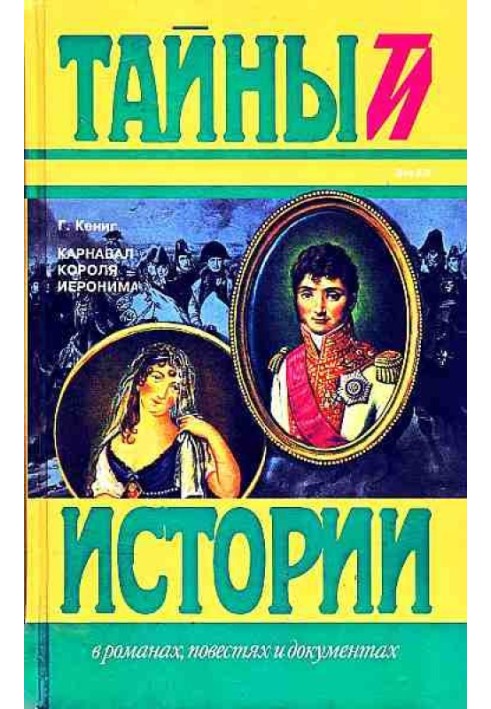King Jerome's Carnival
 Instant download
Instant download
after payment (24/7)
 Wide range of formats
Wide range of formats
(for all gadgets)
 Full book
Full book
(including for Apple and Android)
The historical novel by the German writer G. Koenig “King Jerome's Carnival” reveals a little-known page in the history of Germany at the beginning of the nineteenth century. In 1807, according to the Treaty of Tilsit, the Kingdom of Westphalia was created in the territories of Germany. Napoleon's younger brother Jerome (Jerome) became king, who reigned until 1813, when after the Battle of Leipzig this artificial state formation was destroyed. By the will of fate, the protagonist of the novel, Doctor of Philosophy Herman Teitleben, finds himself in the center of an intricate intrigue and conspiracy. A handsome young man with refined manners, enjoying: success with women. Herman came to the court of the Westphalian king in the hope of making a career, but at first he is mistaken for a Prussian spy, then they try to make him an agent of the French secret police, and they involve the Tugenbundors in a conspiracy. At the same time, he falls in love, then they fall in love with him. Readers of this fascinating historical adventure narrative will learn about how Herman’s fate developed. The author is a famous German historical novelist (1790–1869), was a member of the Hesse-Kassel Diet, not was persecuted once. His best historical novels are The Heavenly Bride (1873) and The Mainz Club (1847). Koenig dedicated a detailed biography, “The Life of Georg Forster” (1858), to the main character of the second of them, Georg Forster. In 1840, the book “Essays on Russian Literature” was published, written on the basis of conversations with the famous popularizer of Russian literature Nikolai Melgunov.
Data sheet
- Name of the Author
- Генрих Кениг Йозеф
- Language
- Russian












